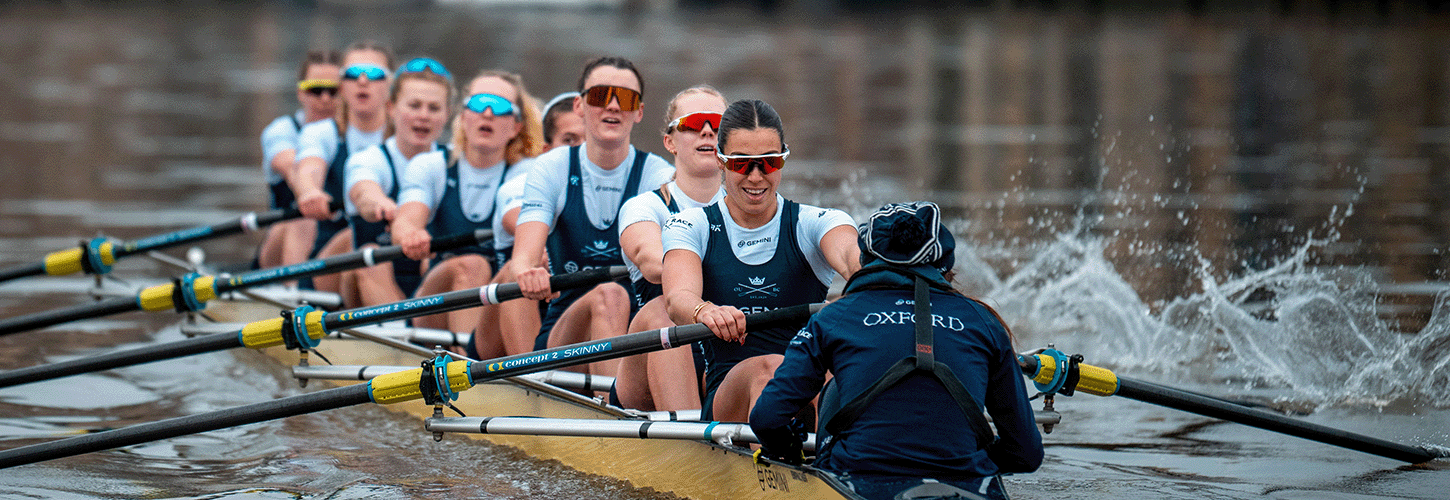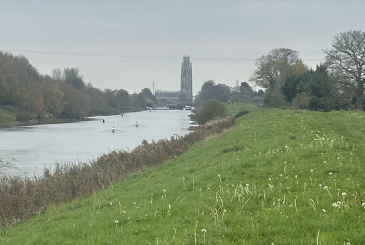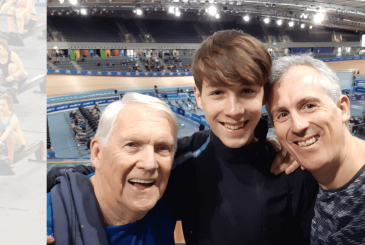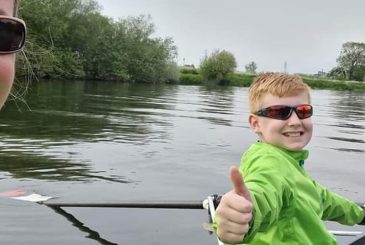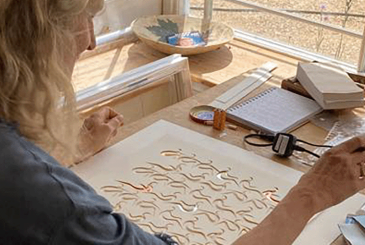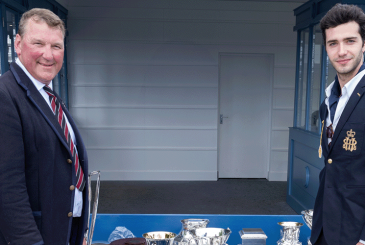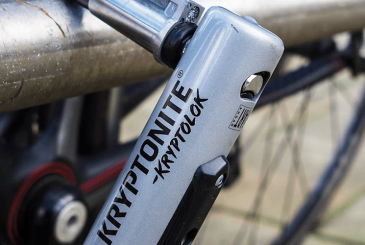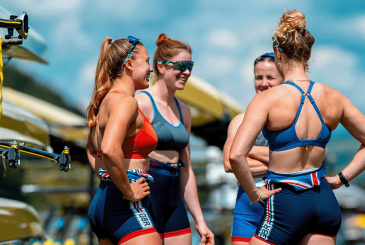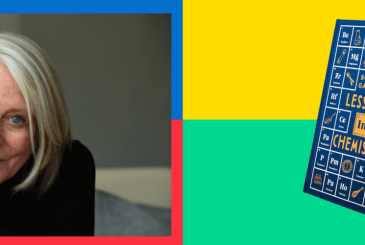Annie Sharp, who will be racing at six in the Oxford Women’s Blue Boat this weekend, talks to British Rowing about her rowing story, and how it helped develop her interest in studying water quality.
Grateful – that’s how Annie Sharp views a particularly rough session of training on the Tideway.
“It’s a mindset. Whenever a wave crashes over your head – you’re struck with something out of your control, you just have to say ‘grateful!’ and see it as a good experience. Because then if something does go wrong on race day, you’re not phased.”
Annie’s rowing route to the Boat Race
Annie, no stranger to the Championship Course, developed this attitude whilst training with Thames RC for the Henley Royal Regatta in 2022 under Thomas Mapp and Sander Smulders. She and her crew went on to win the Wargrave Challenge Cup that year and she successfully defended her title in 2023.
“I walked into Thames at a very strong time when they’d already finalled in the Wargrave the year before. There were women who had been there for five years and built the Thames women’s squad to what it was, so I really learned a lot from them. I think I’ve been able to take some of that strong, empowering atmosphere to Oxford with me. I’m not sure what’s next for me after Oxford, but I know how much fun Thames was!”
Annie moved to Thames RC after three years of rowing for University of London BC whilst studying Geography at UCL, a place where she harnessed her interest in the environment and, in particular, water quality.
“I was coached by Phil Gray, Hugo Gulliver and Gen Bailhache-Graham. I went from one of the few girls learning to row in year 13 at Magdalen College School under Greg Atkins to a very fast, competitive environment with lots of seriously talented women achieving across all levels, including internationally. We went on to win the Aspirational Academic Eights at Henley Women’s Regatta which was a really cool experience.”
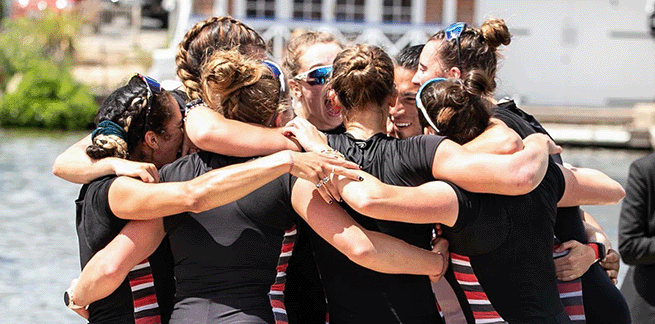
Working with water
Annie was able to combine her studies with her sport, choosing to study rowers and their connection with water in a research project. “I did a lot of primary research on the Tideway. Rowers have to work with the water every day – although sometimes they feel like it might work against them! Through wading in when boating and the physical exposure, rowers have a vast amount of knowledge here. It’s about understanding the water quality, but also about the beauty the river gives you. The memories and friends I have from rowing all really stem from the water.”
After leaving UL, Annie took up a two year graduate scheme, working on biomethane plants from wastewater, further cementing her desire to continue to study in this space.
Extreme weather’s impact on rowing
Environmental issues have had a particular impact on Oxford’s ability to train on their home stretch. With a flooded Thames, the squads have been taking the opportunity to train at the GB National Training Centre in Caversham. This is another piece of water that Annie’s familiar with as she won a bronze medal in the Women’s four at the European Rowing U23 Championships in 2022 after finishing first at Final Trials in a pair with Abigail Topp. “The Tideway has a mind of its own and Wallingford has been flooded for months but we’ve been really lucky that we were able to use the lake at Caversham around the GB Rowing Team’s training,” she says.
Annie particularly praised her coaches Allan French and James Powell for their “calm and composed” approach to the ever-changing conditions. “A normal paddle session included a lot of extra travel time to get to Caversham – we made it work, and we made our deadlines, by using the approach that every stroke we could take would have to be the best quality possible.”
Learning more
Academia goes hand in hand with the Boat Race – Annie is studying a masters in Water Science, Policy and Management at St Antony’s College, Oxford.
“My current studies cover a huge range of topics including hydrology and understanding future climate and weather events, as well as economics and infrastructure financing. Water is multifaceted – from its ownership to its mobility, its a very complicated subject. Water law is also really interesting.”
The graphic from US Geological Survey shown below demonstrates the total amount of water in the world. The vastly smaller circle next to it shows the amount of fresh water that’s actually accessible from lakes and rivers. This year it was the wettest February in 250 years, so people wonder why we have issues with water scarcity. We all have a duty to consider this vital resource.”
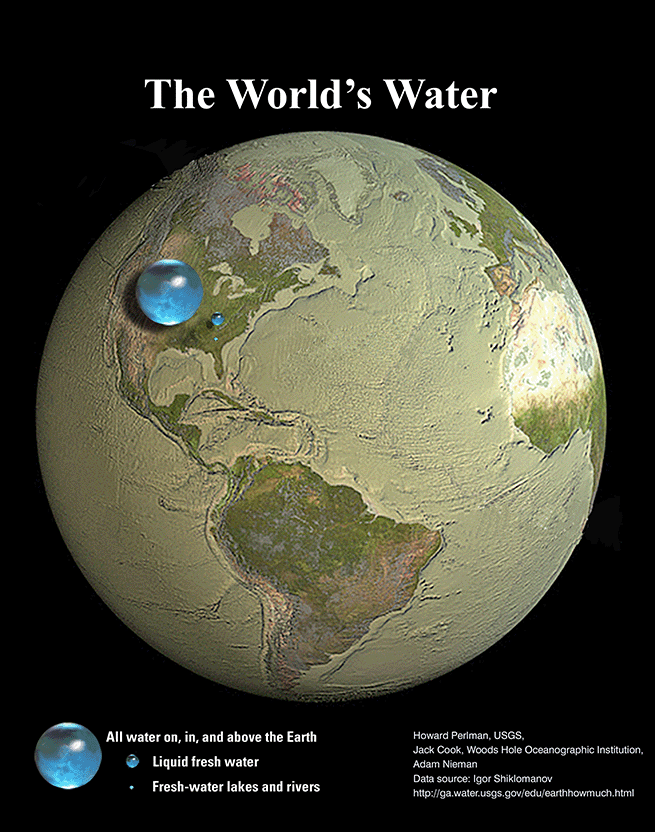
Annie’s favourite United Nations Sustainable Development Goal is (unsurprisingly) No. 6 – Clean Water and Sanitation. “Progress is being made, but the issue is sustainability. Those who have access to these vital things might experience a reduction or loss of access – either by operation and maintenance issues or through climate change issues.”
For those interested in exploring the space, Annie recommends taking multiple sources into account. “Studying this for quite a few years as well as working in the industry and seeing the challenges businesses face means that I think it’s really important to read around the topic. There’s a lot of focus in the press currently on root causes, which sometimes might not grasp the full picture. I think this focus frame should be ‘what is there to be done’? There are a lot of innovations occurring in this space across different stakeholders.”
But first, the Boat Race
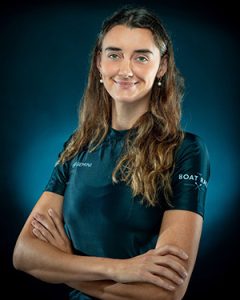
Turning her mind back to the race at hand, Annie still can’t get away from her area of interest. “The sewage system in London was built for a population of two million during the Victorian era. And now we have over nine million. The new 25km super sewer has just been completed. One of the spots they’ve developed is right next to the Boat Race start, so I’m excited to row past it!”
“Oxford has been an aim of mine for a long time. My dad and godfather met here and had an amazing time. Since day one there has been a lot of good energy. I’m really excited to represent the current squad, as well as the past squads of Oxford women’s rowers. There’s so many more people that have contributed to this boat past the women you’ll see on the screen. Nothing makes me happier than cheering on the team.”
The impact of poor water quality on rowers’ health
With everything she knows about what’s below the boat, is Annie worried about getting sick after the Boat Race on Saturday?
Not at all, she says. ““We take every precaution to protect ourselves from dirty water. So I’m looking forward to this year’s Boat Race and we have full confidence in the safety guidance issued to us by the University Boat Clubs and the Boat Race.”
Rowers can get guidance on rowing when water quality is poor on the British Rowing sustainability page.
Banner photo: Benedict Tufnell/Row360. (Annie is in the six seat.)


